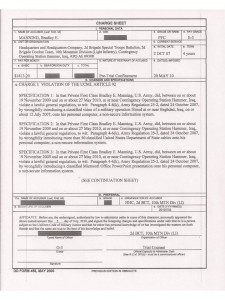![New CrisisWatch bulletin from the International Crisis Group]()
CrisisWatch N°83, 1 July 2010
Four actual or potential conflict situations around the world deteriorated and none improved in June 2010, according to the new issue of the International Crisis Group's monthly bulletin CrisisWatch, released today.
In Kyrgyzstan large-scale violence between ethnic Kyrgyz and Uzbeks tore through the south of the country. Over 200 people have been officially reported killed and hundreds of thousands displaced by the fighting, the immediate spark for which is not yet clear. The country's provisional government was unable to control the situation and failed in its efforts to secure an international military intervention.
An uneasy calm has now descended over the area and the 27 June constitutional referendum was conducted peacefully. However, there remains significant potential for the violence to reignite unless effective security measures and a reconciliation process are promptly put in place.
Turkey's Kurdish PKK insurgents intensified their attacks in the country after calling off their 14-month unilateral ceasefire in early June. The violence reached its peak in the middle of the month when at least 40 soldiers and militants were killed in clashes in the country's south-east. The Turkish military responded with a land and air offensive against PKK bases in northern Iraq. The renewed clashes highlight the faltering of Prime Minister Erdogan's Kurdish “opening” policy and represent a significant deterioration in the government's relations with the Kurdish population.
In Burundi presidential elections took place amid escalating violence, with several people killed in a series of grenade attacks and shootings over the month. Opposition candidates boycotted the poll and labelled the re-election of President Nkurunziza – with over 90 per cent of the vote – a sham. With the opposition also set to boycott parliamentary polls scheduled for late July, growing tensions risk endangering Burundi's fragile democracy and undermining progress made since the end of the country's brutal civil war.
June also saw rising tensions in neighbouring Rwanda ahead of presidential elections planned for August. The government denies involvement in recent attacks on high-profile critics, including the shooting of a former army chief in South Africa and the murder of a journalist in Kigali. But the events point to an atmosphere of repression that appears to have deepened in recent months.
June 2010 TRENDS
Deteriorated Situations
Burundi, Kyrgyzstan, Rwanda, Turkey
Improved Situations
–
Unchanged Situations
Afghanistan, Algeria, Armenia, Armenia/Turkey, Azerbaijan, Bangladesh, Basque Country (Spain), Belarus, Bolivia, Bosnia, Cameroon, Central African Republic, Chad, Chechnya (Russia), Colombia, Comoros, Côte d'Ivoire, Cyprus, Democratic Republic of Congo, Djibouti, Ecuador, Egypt, Eritrea, Ethiopia, Georgia, Guatemala, Guinea, Guinea-Bissau, Haiti, India (non-Kashmir), Indonesia, Iran, Iraq, Israel/Occupied Palestinian Territories, Kashmir, Kazakhstan, Kenya, Kosovo, Lebanon, Macedonia, Madagascar, Mauritania, Moldova, Morocco, Myanmar/Burma, Nagorno-Karabakh (Azerbaijan), Nepal, Nigeria, North Caucasus (non-Chechnya), Northern Ireland, North Korea, Pakistan, Paraguay, Philippines, Serbia, Somalia, Somaliland, Sri Lanka, Sudan, Syria, Tajikistan, Thailand, Timor-Leste, Turkmenistan, Uganda, Ukraine, Uzbekistan, Venezuela, Yemen, Zimbabwe
Search current and all past editions of CrisisWatch by using the CrisisWatch Database. To unsubscribe from CrisisWatch, click here.

 The ‘warrior monk'
The ‘warrior monk' Ralph Peters
Ralph Peters





 local people are working to resolve some of the longest and bloodiest conflicts around the world.
local people are working to resolve some of the longest and bloodiest conflicts around the world.

